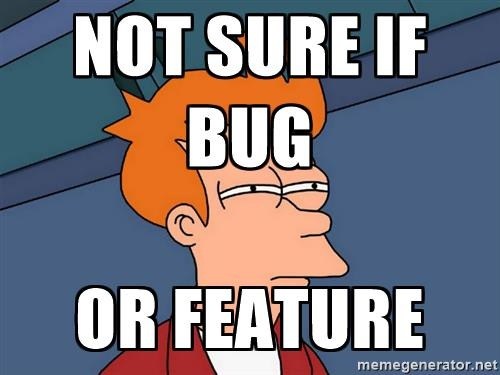My second BNBR violation. You’re gonna love this one.
It’s in a comment that’s been deleted, because that’s what happens when moderation dings a comment. Doesn’t even appear in the logs.
The context is the question:
The trigger is the anonymous question (since deleted):
Why does Jack Fraser have pubes on his head? [Why does Jack Fraser have pubes on his head? Question details: “That’s not a hairstyle you dumbass. Those are fucking pubes!!!”]
My answer had featured an earlier instance of Jack Fraser being victimised by anonymous questions; I’d come across yet another instance, two weeks later, and saw fit to comment on the ongoing lack of vetting by quoting this new lapse:
Why does Jack Fraser have pubes on his head? [ Why does Jack Fraser have pubes on his head? ]
That’s not a hairstyle you dumbass. Those are fucking pubes!!!
How well is the “new anonymity” policy on Quora working at filtering out bad content, as of April 24, 2017?
Blockquotes in original.
That comment has been deleted as BNBR.
*golf clap*
Upcoming Changes to Anonymity on Quora by Riley Patterson on Quora Product Updates
All anonymous content will be reviewed for spam and harassment before receiving distribution.
Why yes. Good to know you’re on the case. Good to know that you’re continuing your track record of ignoring context, too.
I’ve appealed. Jennifer Edeburn, I know you’ll say here too that I should have provided more detail. Currently, I have to say, I don’t feel strongly motivated to.





